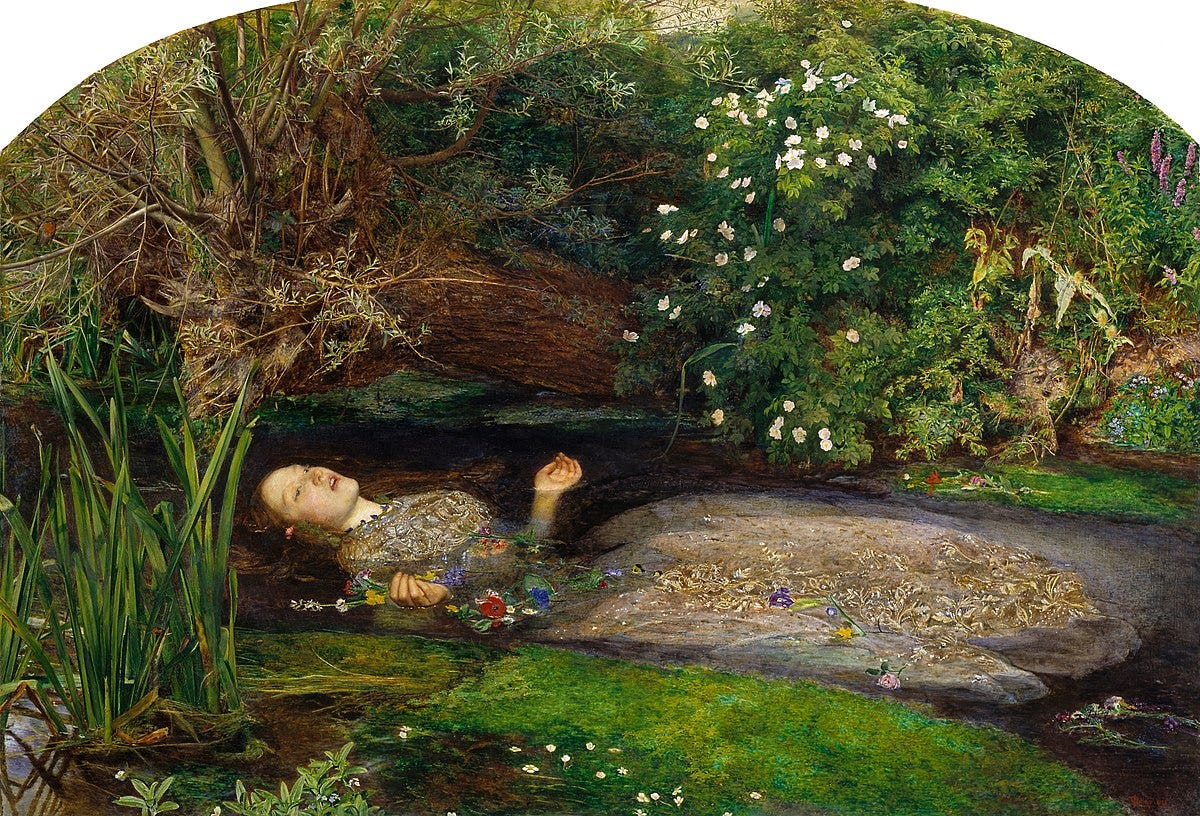
Moonlight, Summer Moonlight
by Emily Brontë
’Tis moonlight, summer moonlight, All soft and still and fair; The solemn hour of midnight Breathes sweet thoughts everywhere, But most where trees are sending Their breezy boughs on high, Or stooping low are lending A shelter from the sky. And there in those wild bowers A lovely form is laid; Green grass and dew-steeped flowers Wave gently round her head. ═══════════════════════
In 1846, a volume of poetry by three authors — purportedly brothers — named Currer, Ellis, and Acton Bell, was published by Aylott & Jones, of 8 Paternosters Row in London. This book, a stunning non-success, sold only two copies in the year of its publication. The Brothers Bell might have languished unknown in their lifetimes and beyond. Only one stroke of fortune saved them from literary obscurity.
That stroke of fortune? It was that the Brothers Bell did not exist, except as pen names for Charlotte, Emily, and Anne Brontë. Remarkably undeterred by their failure in the poetry market, all three sisters responded by beginning the novels which established them, under their own names, in the English literary canon. Wuthering Heights, by Emily Brontë (1818–1848), a.k.a. Ellis Bell, would appear in 1847, the year before her death, aged 30, of tuberculosis.
The twenty-one “Ellis Bell” poems in the 1846 collection are the only verse Emily Brontë published in her lifetime, selected from two notebooks in which she had been making fair copies of her poems. As posthumous collections based on those notebooks (“that Charlotte Brontë had handled tenderly”) make clear, her actual poetic output was far more prodigious.

Today’s Poem, dating from May 1840, was not among the poems she chose for inclusion in the 1846 Poems. It did not appear in print until 1908, in Hodder & Stoughton’s Complete Works of Emily Brontë. It’s one of a number of poems, such as “Night Wind,” in which moonlight, specifically the “mellow” moonlight of summertime, transfigures both the exterior landscape and the speaker’s imagination, rendering the world both revelatory and strange.
Here, the limpid trimeter quatrains first introduce a scene of peace and beauty. “The solemn hour of midnight / Breathes sweet thoughts everywhere,” concludes the first stanza. “But,” begins the next, instantly troubling that peace, though only to increase the volume. Sweet thoughts are everywhere, but most of all in this wooded place, where (paradoxically) the wind disturbs the trees.
The woods form a series of “bowers,” but strangely, amid all the “sweet thoughts,” these are not, after all, retreats of refreshment and renewal. What the third stanza leads us to instead — the whole poem seems to beckon us on through the moonlight, to show us something hidden in the woods — is possibly, though not absolutely clearly, a corpse.
Possibly this “lovely form” is only sleeping. But aside from the implied inananimacy of “form, the passive voice in line 10 suggests that this “form,” however “lovely,” didn’t lay herself down there of her own free will. There she simply is, in the weird moonlight at the heart of the woods, like the John Everett Millais painting of the drowned Ophelia, surrounded by grasses and flowers. The poem that begins in a Romantic impulse ends instead in an ambiguous but highly aestheticized Pre-Raphaelite-ish pathos.






It goes so well with Ophelia, is it based on her, or another one who is also gone?
Besides incredible literary genius, I envy the Brontë sisters their collaborative family culture! I have three sisters, but when we have the (all-too rare) joy of being together, it's talk we're at--we summarily and with great wit solve the world's problems between the four of us! In all seriousness, though, this poem reminds me of another one by Emily that I found and memorized as a teenager, called "My Lady's Grave". Its concluding stanza offers a similar idea of the solitariness of the dead, encompassed only by the nature, though the image is given audible features instead of visible:
Blow, west wind, by the lonely mound:
And murmur, summer streams!
There is no need of other sound
To soothe my lady's dreams.